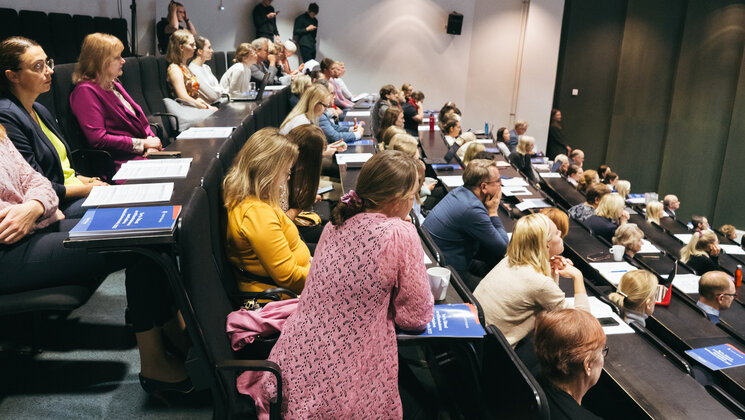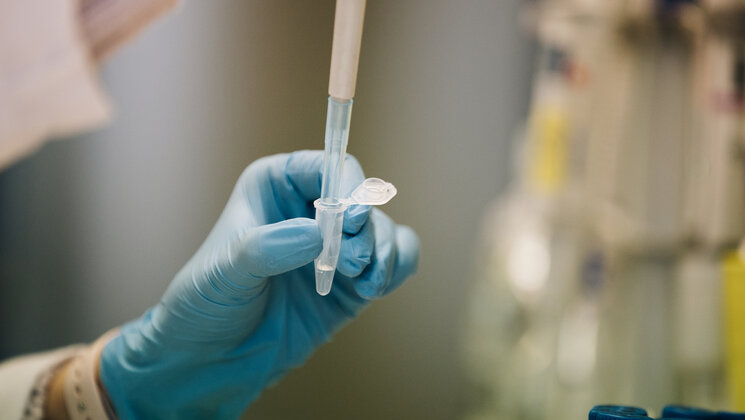Pharmacoepigenetics Research Group
Currently, there is no cure for psychostimulant-induced (such as cocaine and amphetamine) drug addiction. Several studies have evaluated the reversal of psychostimulant addiction using dopaminergic, serotoninergic, glutamatergic, and GABAergic strategies. Unfortunately, clinical data remain disappointing, and novel pharmacological strategies are needed. Therefore, the main goal of our research group is to investigate the epigenetic mechanisms of drug addiction and, in the longer run, to find new treatment options.
The main focus of our study is to investigate the role of epigenetic modifications (particularly DNA methylation and demethylation) in drug-dependent neuroplasticity mechanisms, to assess whether enzymes acting through epigenetic mechanisms may be pharmacotherapeutic targets in the treatment of addictive disorders, and to identify potential epigenetic drugs. Epigenetic studies are important for understanding how exposure to a drug of abuse translates to changes in gene expression and long-lasting behavioural phenotypes. Better understanding of the molecular mechanisms of drug addiction and dependence may lead to the development of novel targets for treating and preventing addictive disorders. Therefore, our research group’s more general and forward-looking aim is to investigate the role of epigenetic mechanisms in the pharmacokinetics (pharmacoepigenetics) and pharmacodynamics of psychiatric and neurological drugs.
People
- Professor Anti Kalda
- Research Fellow Kaili Anier
- Research Fellow Monika Jürgenson
- Junior Research Fellow/PhD student Kelli Somelar-Duracz
- PhD student Kerly Niinep
- Urb M, Niinep K, Matsalu T, Kipper K, Herodes K, Zharkovsky A, Timmusk T, Anier K, Kalda A (2019). The role of DNA methyltransferase activity in cocaine treatment and withdrawal in the nucleus accumbens of mice. Addiction Biology 1−13. doi: 10.1111/adb.12720
- Anier K, Urb M, Kipper K, Herodes K, Timmusk T, Zharkovsky A, Kalda A (2018). Cocaine-induced epigenetic DNA modification in mouse addiction-specific and non-specific tissues. Neuropharmacology 139: 13−25. doi: 10.1016/j.neuropharm.2018.06.036
- Anier K, Malinovskaja K, Pruus K, Aonurm-Helm A, Zharkovsky A, Kalda A (2014). Maternal separation is associated with DNA methylation and behavioural changes in adult rats. European Neuropsychopharmacology 24: 459−468. doi: 10.1016/j.euroneuro.2013.07.012
- Anier K, Žarkovski A, Kalda A (2013). S-adenosylmethionine modifies cocaine-induced DNA methylation and increases locomotor sensitization in mice. International Journal of Neuropsychopharmacology 16: 2053−2066. doi: 10.1017/S1461145713000394
- Anier K, Malinovskaja K, Aonurm-Helm A, Zharkovsky A, Kalda A (2010). DNA methylation regulates cocaine-induced behavioral sensitization in mice. Neuropsychopharmacology 35: 2450−2461. doi: 10.1038/npp.2010.128
- Vaher, Kadi; Anier, Kaili; Jürgenson, Monika; Harro, Jaanus; Kalda, Anti (2020). Cocaine-induced changes in behaviour and DNA methylation in rats are influenced by inter-individual differences in spontaneous exploratory activity. Journal of Psychopharmacology, 34, 680−692. doi: 10.1177/0269881120916137
- Urb M, Anier K, Matsalu T, Aonurm-Helm A, Tasa G, Koppel I, Zharkovsky A, Timmusk T, Kalda A (2019). Glucocorticoid Receptor Stimulation Resulting from Early Life Stress Affects Expression of DNA Methyltransferases in Rat Prefrontal Cortex. Journal of Molecular Neuroscience 68: 99−110. doi: 10.1007/s12031-019-01286-z
- Urb M, Niinep K, Matsalu T, Kipper K, Herodes K, Zharkovsky A, Timmusk T, Anier K, Kalda A (2019). The role of DNA methyltransferase activity in cocaine treatment and withdrawal in the nucleus accumbens of mice. Addiction Biology 1−13. doi: 10.1111/adb.12720
- Anier K, Urb M, Kipper K, Herodes K, Timmusk T, Zharkovsky A, Kalda A (2018). Cocaine-induced epigenetic DNA modification in mouse addiction-specific and non-specific tissues. Neuropharmacology 139: 13−25. doi: 10.1016/j.neuropharm.2018.06.036
- Anier K, Kalda A (2017). DNA Methylation, Psychostimulant-Induced Addiction and the Position of Cocaine. In: Victor R. Preedy (Ed.). The Neuroscience of Cocaine: Mechanisms and Treatment (89−96). Elsevier. B978-0-12-803750-8.00010-5
- Kalda A, Zharkovsky A (2015). Epigenetic Mechanisms of Psychostimulant-Induced Addiction. In: Int Rev Neurobiol. (85−105). ELSEVIER. doi: 10.1016/bs.irn.2015.02.010.
- Anier K, Malinovskaja K, Pruus K, Aonurm-Helm A, Zharkovsky A, Kalda A (2014). Maternal separation is associated with DNA methylation and behavioural changes in adult rats. European Neuropsychopharmacology 24: 459−468. doi: 10.1016/j.euroneuro.2013.07.012
- Anier K, Žarkovski A, Kalda A (2013). S-adenosylmethionine modifies cocaine-induced DNA methylation and increases locomotor sensitization in mice. International Journal of Neuropsychopharmacology 16: 2053−2066. doi: 10.1017/S1461145713000394
- Anier K, Kalda A (2012). Epigenetics in the Central Nervous System. Current Translational Geriatrics and Gerontology Reports 1: 190−198. doi: 10.1007/s13670-012-0024-3
- Anier K, Malinovskaja K, Aonurm-Helm A, Zharkovsky A, Kalda A (2010). DNA methylation regulates cocaine-induced behavioral sensitization in mice. Neuropsychopharmacology 35: 2450−2461. doi: 10.1038/npp.2010.128
Supervised dissertations
- Mari Urb, 2020, (sup) Anti Kalda, Tõnis Timmusk. DNA methylation in the predisposition, expression and abstinence of cocaine addiction. University of Tartu, Faculty of Medicine.
- Kaili Anier, 2013, (sup) Anti Kalda, Aleksandr Žarkovski. The role of DNA methylation in the development of cocaine-induced behavioural sensitisation. University of Tartu, Faculty of Medicine.
Supervised dissertations
- Kerly Niinep, (sup) Anti Kalda, Kaili Anier. The role of epigenetic modifiers in the mechanisms of early life stress and prediction of drug addiction. University of Tartu, Faculty of Medicine.
- Kelli Somelar, (sup) Külli Jaako, Anti Kalda. The molecular mechanisms of dysfunctional brain plasticity. University of Tartu, Faculty of Medicine.
Supervised Master's thesis
- Kerly Niinep, 2016, (sup) Anti Kalda, Neeme Tõnisson, Kaili Anier. Varajase eluea stressi mõju epigeneetilistele modifitseerijatele. University of Tartu, Faculty of Medicine.



